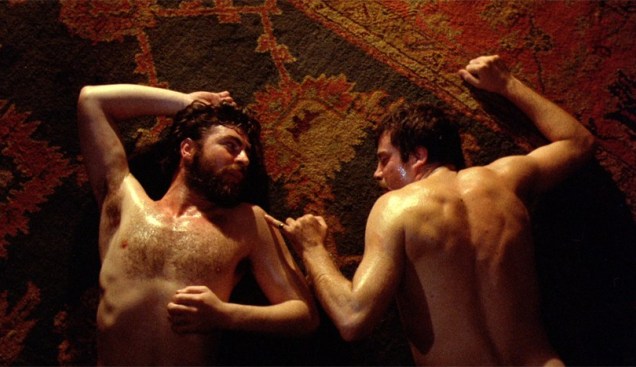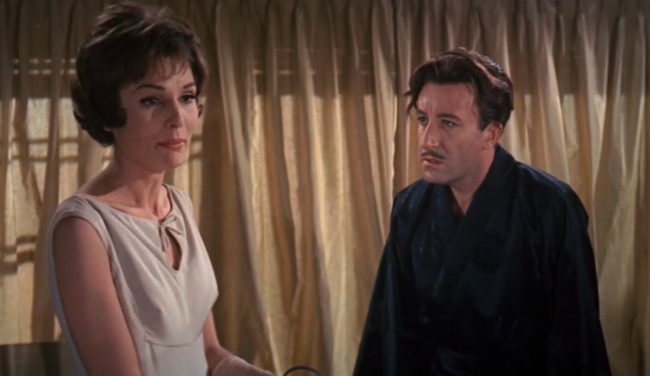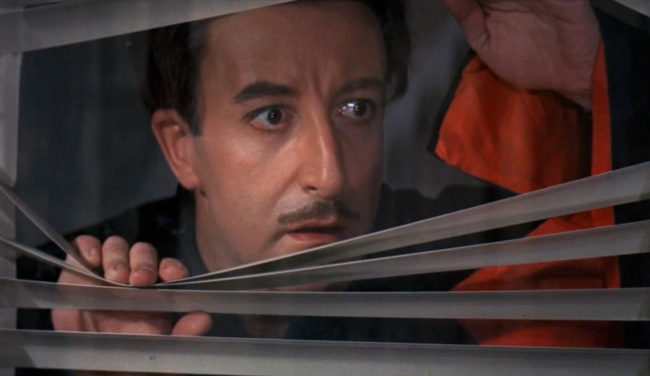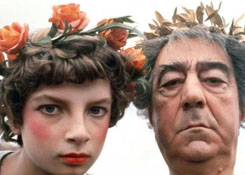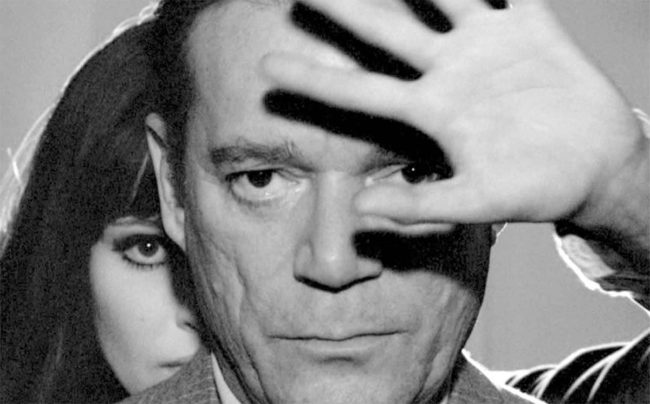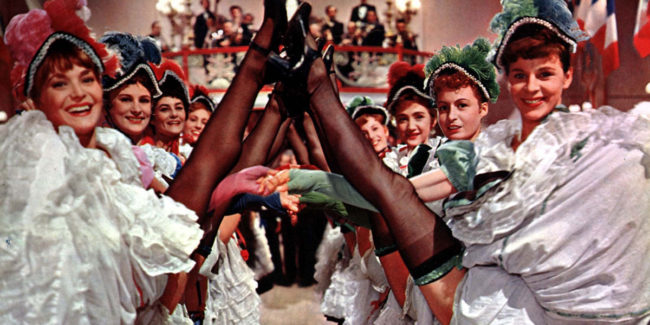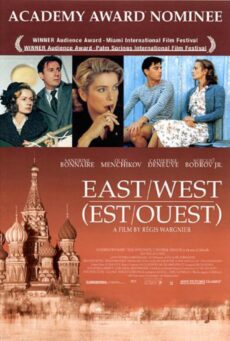 Laemmle Theatres and the Anniversary Classics Series present this month’s film in our popular Anniversary Classics Abroad program: Regis Wargnier’s compelling and increasingly timely thriller, East/West. Wargnier had won the Academy Award for Best Foreign Language Film for his earlier historical epic, Indochine. The Oscar-nominated star of that movie, Catherine Deneuve, collaborated with him again in another fascinating historical drama with an exotic backdrop.
Laemmle Theatres and the Anniversary Classics Series present this month’s film in our popular Anniversary Classics Abroad program: Regis Wargnier’s compelling and increasingly timely thriller, East/West. Wargnier had won the Academy Award for Best Foreign Language Film for his earlier historical epic, Indochine. The Oscar-nominated star of that movie, Catherine Deneuve, collaborated with him again in another fascinating historical drama with an exotic backdrop.
Inspired by true events, East/West tells a story of Russian émigrés living in Paris who were lured back to the Soviet Union after the end of World War II. Russian dictator Josef Stalin promised these refugees a complete pardon if they returned to their homeland. But when they actually returned, many of these refugees were executed or sent to labor camps or forced to live in squalor. The main characters in the story are a doctor (Oleg Menchikov) with a French wife (Sandrine Bonnaire). Deneuve has a vivid supporting role as a visiting French actress who ultimately plays a key role in helping the married couple.
At a time of increasing oppressiveness under the Putin regime in Russia, this reminder of harsh living conditions under the rule of an earlier dictator takes on renewed relevance. Wargnier wrote the screenplay for East/West with Louis Gardel and two Russian writers, Rustam Ibragimbekov and Sergei Bodrov. Bonnaire, the star of earlier French films Vagabond, La Ceremonie, and Monsieur Hire, confirmed her enormous appeal in this picture. Oscar-nominated composer Patrick Doyle (A Little Princess, Sense and Sensibility, Gosford Park), who had worked with Wargnier on Indochine, again contributed a vibrant score.
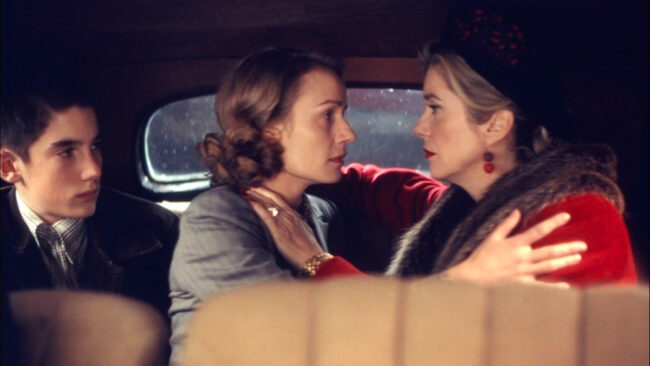
The Los Angeles Times’ Kevin Thomas declared, “East/West has the scale and rich period atmosphere of Indochine while gradually evolving into an acutely suspenseful thriller.” Writing in Movieline magazine, Stephen Farber paid tribute to the director: “Regis Wargnier has a gift for making sweeping popular entertainment,” and he added, “Sandrine Bonnaire gives a marvelously expressive performance.” The New York Times’ A.O. Scott called East/West a “sumptuous, moving new film,” and Rene Rodriguez of the Miami Herald hailed it as “a suspenseful and hugely engrossing drama.”
Our 20th anniversary presentation of EAST/WEST screens Wednesday, March 18, at 7pm in Glendale, Pasadena, and West L.A. Click here for tickets.
Format: DVD

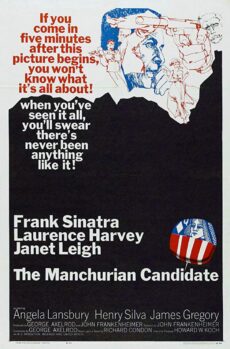 Laemmle Theatres and the Anniversary Classics Series invite you to celebrate the publication of Stephen Farber and Michael McClellan’s new book, Cinema ’62: The Greatest Year at the Movies, with screenings of one of the most memorable movies from 1962, John Frankenheimer’s The Manchurian Candidate.
Laemmle Theatres and the Anniversary Classics Series invite you to celebrate the publication of Stephen Farber and Michael McClellan’s new book, Cinema ’62: The Greatest Year at the Movies, with screenings of one of the most memorable movies from 1962, John Frankenheimer’s The Manchurian Candidate.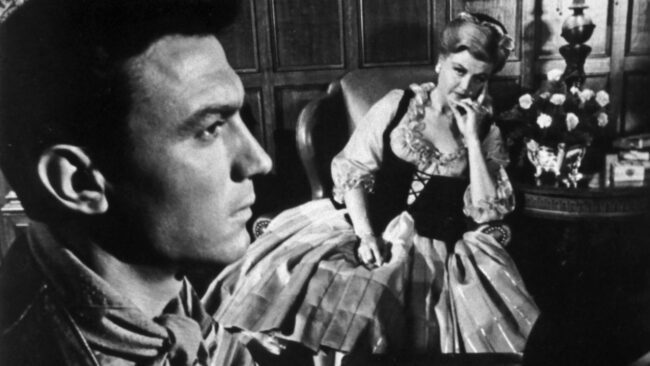
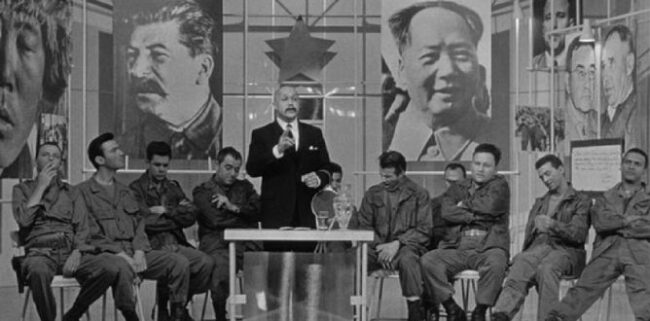
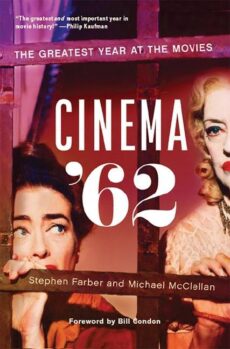 Cinema ’62 provides fascinating anecdotes about this classic thriller and about many of the other masterpieces of this landmark year. Read all about them after you enjoy this innovative, frightening, wickedly funny, and ever-timely highlight from a year full of cinematic wonders.
Cinema ’62 provides fascinating anecdotes about this classic thriller and about many of the other masterpieces of this landmark year. Read all about them after you enjoy this innovative, frightening, wickedly funny, and ever-timely highlight from a year full of cinematic wonders.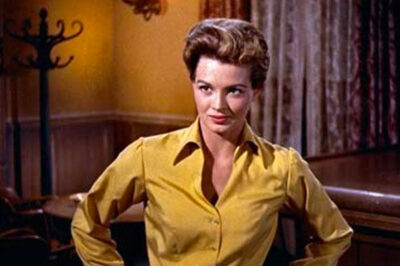 Laemmle Theatres and the Anniversary Classics Series present one of the best-loved westerns of all time, Howard Hawks’ 1959 action romp,
Laemmle Theatres and the Anniversary Classics Series present one of the best-loved westerns of all time, Howard Hawks’ 1959 action romp, 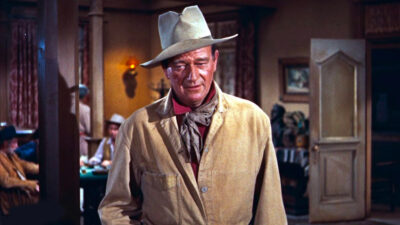 The story by B.H. McCampbell (Hawks’s eldest daughter Barbara) presents a fairly simple tale. Wayne plays a sheriff in a small Texas town who is holding a murderer (Claude Akins) in the town jail until the marshal can move him to a nearby penitentiary. But the killer’s brother, a wealthy rancher with a large gang of confederates, intends to break the prisoner out of jail. Wayne’s character is vastly outnumbered, but he turns to an unlikely posse—a drunken deputy (Martin), a helpless cripple (Brennan), and a young greenhorn (Nelson), along with a visiting lady gambler (Dickinson).
The story by B.H. McCampbell (Hawks’s eldest daughter Barbara) presents a fairly simple tale. Wayne plays a sheriff in a small Texas town who is holding a murderer (Claude Akins) in the town jail until the marshal can move him to a nearby penitentiary. But the killer’s brother, a wealthy rancher with a large gang of confederates, intends to break the prisoner out of jail. Wayne’s character is vastly outnumbered, but he turns to an unlikely posse—a drunken deputy (Martin), a helpless cripple (Brennan), and a young greenhorn (Nelson), along with a visiting lady gambler (Dickinson).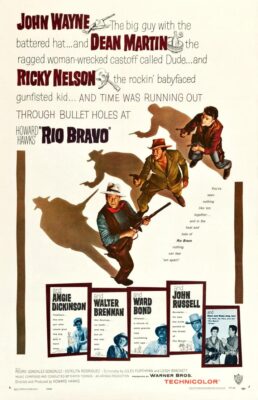 Brackett surely contributed to the vitality of Angie Dickinson’s character, Feathers, a tough, sassy woman who more than holds her own in confrontations with Wayne. The Los Angeles Times took special note of Dickinson, saying, “starmaker Howard Hawks has worked some of the same kind of magic as he did with Lauren Bacall in To Have and Have Not.” Indeed, some of the memorable repartee between Bogart and Bacall in that film was recycled effectively in Rio Bravo.
Brackett surely contributed to the vitality of Angie Dickinson’s character, Feathers, a tough, sassy woman who more than holds her own in confrontations with Wayne. The Los Angeles Times took special note of Dickinson, saying, “starmaker Howard Hawks has worked some of the same kind of magic as he did with Lauren Bacall in To Have and Have Not.” Indeed, some of the memorable repartee between Bogart and Bacall in that film was recycled effectively in Rio Bravo.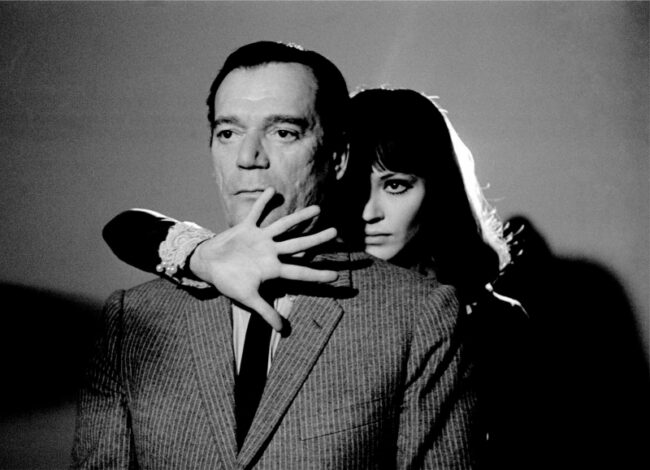
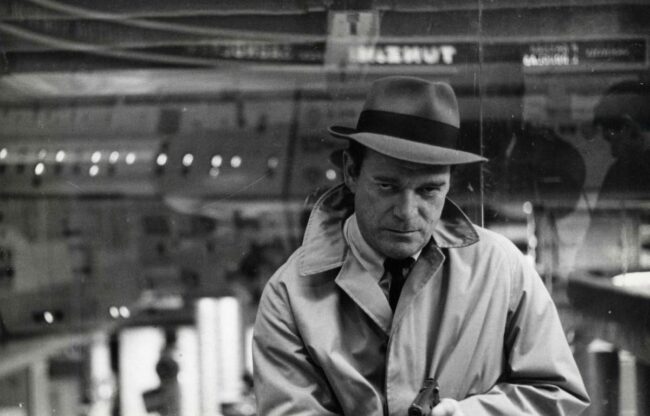
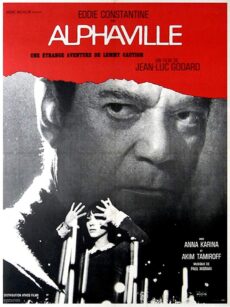 The film won the top prize, the Golden Bear, at the Berlin Film Festival. Reviews were mixed at the time, with some critics bewildered and others praising the film’s style and originality. Over the years it has been recognized as a prophetic work in its protest of the growing dehumanization of modern life. As the Boston Globe’s Ty Burr wrote, “Alphaville moves closer to relevance with every passing year.” The New Yorker’s Richard Brody called it “one of the great cinematic works of romanticism.” Time Out’s Keith Uhlich added, “Karina proves to be the beating heart of the movie.”
The film won the top prize, the Golden Bear, at the Berlin Film Festival. Reviews were mixed at the time, with some critics bewildered and others praising the film’s style and originality. Over the years it has been recognized as a prophetic work in its protest of the growing dehumanization of modern life. As the Boston Globe’s Ty Burr wrote, “Alphaville moves closer to relevance with every passing year.” The New Yorker’s Richard Brody called it “one of the great cinematic works of romanticism.” Time Out’s Keith Uhlich added, “Karina proves to be the beating heart of the movie.”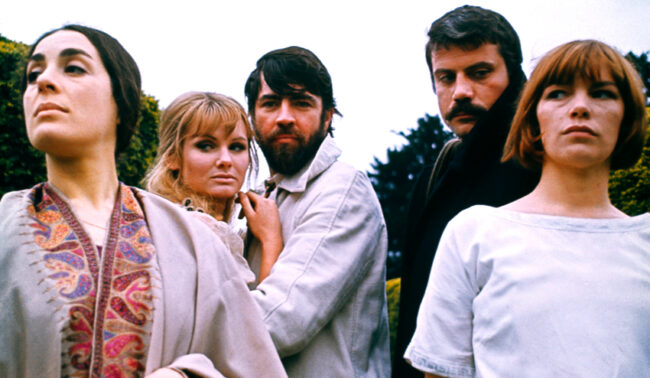
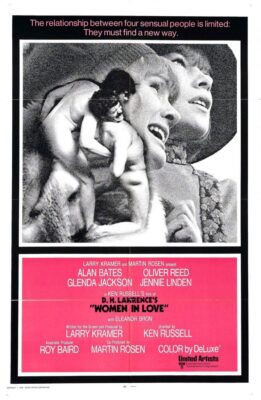 Director Ken Russell, best known for his “flamboyant and controversial style,” in such subsequent films as The Music Lovers, The Devils, The Who’s Tommy, Lisztomania, and Altered States, is notably more restrained in WOMEN IN LOVE. He did, however, connect with the sexual revolution and bohemian politics of the late 1960s, when the film was made, in notorious scenes such as the nude wrestling match between Reed and Bates, the first display of full-frontal male nudity in a mainstream movie. WOMEN IN LOVE represents his sole Oscar nod for directing.
Director Ken Russell, best known for his “flamboyant and controversial style,” in such subsequent films as The Music Lovers, The Devils, The Who’s Tommy, Lisztomania, and Altered States, is notably more restrained in WOMEN IN LOVE. He did, however, connect with the sexual revolution and bohemian politics of the late 1960s, when the film was made, in notorious scenes such as the nude wrestling match between Reed and Bates, the first display of full-frontal male nudity in a mainstream movie. WOMEN IN LOVE represents his sole Oscar nod for directing.